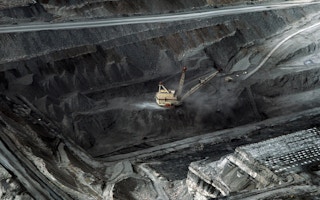From the UK and China to Denmark, Chile and India, an inexorable global rush to move from polluting coal is under way. And it’s not just climate change and the Paris agreement that are the catalyst. Renewable energy is now cheaper than coal in most parts of the world.
To continue reading, subscribe to Eco‑Business.
There's something for everyone. We offer a range of subscription plans.
- Access our stories and receive our Insights Weekly newsletter with the free EB Member plan.
- Unlock unlimited access to our content and archive with EB Circle.
- Publish your content with EB Premium.
In late 2017, the conservative UK government—the country that kicked off global coal use worldwide—announced it would close the country’s eight remaining coal power stations by 2025 and phase out coal, with bipartisan political and public support. In Europe, France, Portugal, Italy, the Netherlands, Sweden and Finland all have coal exit plans, while Germany and Ireland are discussing it.
Meanwhile in Australia, our own Resources Minister, Senator Matt Canavan just gave a speech dubbing coal a ‘beautiful industry’ and the Federal Coalition continues its blind and stubborn support of Adani’s unbuilt Carmichael coal mine, a project rejected by 28 banks, abandoned by contractors and overwhelmingly opposed by the Australian public.
The tenacity of the government’s position—holding on by its fingernails to an industry that is cooking the planet, impacting the health of millions, polluting our land, water and air, and displacing traditional land owners—is not only socially and environmentally dangerous, but economically reckless.
Our own politicians’ antediluvian attitude toward coal and energy is mortgaging our future and jeopardising the planet. It’s not something to be proud of.
So what is the difference between Australia (and our old friend America)—and the rest of the world?
We just happen to be sloshing with money from the fossil fuel industry. For decades the coal, oil and gas lobby has bought and sold politicians and with such success that Australia has become almost a lone outpost for coal in the global economy.
Last year, funds to produce ads spruiking the virtues of coal and mining were the largest single political expenditure by non political parties — more than the amount spent by any other industry. Feeling the heat and with its backs against the wall, the fossil fuel lobby is now simply throwing its money at the government to try to buy support and time.
Money opens doors and in an astounding acknowledgement that went relatively under-reported, the Minerals Council of Australia (MCA) recently admitted that it donates to politicians to gain access. We live in a democracy, but nothing undermines democracy more than big coal barons paying to get the ear of our elected officials.
Add this to the constant revolving door between jobs in the fossil fuel industry and our government and it’s clear Australia has a problem.
Not surprisingly, Australian miners received twice as much money from the Federal Government in tax credits as it spend on protecting our precious natural heritage. This deficit in funding for the environmental protection has left park rangers overworked and decimated community organisations caring for their local natural resources.
“
The tenacity of the government’s position—holding on by its fingernails to an industry that is cooking the planet, impacting the health of millions, polluting our land, water and air, and displacing traditional land owners—is not only socially and environmentally dangerous, but economically reckless.
At the same time giant multinational corporations, that already pay no tax, are given money from the government to continue polluting in the form of subsidies.
Given that, don’t hold your breath for any kind of a sensible energy policy from the Turnbull Government. Having already ditched The Clean Energy Target recommended by our Chief Scientist Alan Finkel, Prime Minister Turnbull and co have settled on a “National Energy Guarantee” – aptly called the NEG.
This is a policy that actually ensures coal power stations in Australia will remain in our energy system. Not only is it a dud policy, it’s actually worse than no policy at all.
Speaking on ABC Radio National after the policy was announced, an EnergyAustralia spokesperson admitted they would keep the company’s coal-fired power stations operating longer and further delay the transition to clean energy if the NEG is implemented.
In late January, a United Nations investment official put Australia on notice for being “a decade behind” other rich nations on climate change, endlessly battling about the downsides rather than taking up the opportunities of the transition.
Right now the Government, no doubt urged on by its bosses in the fossil fuel industry, is pushing to strip charities from having a strong voice to oppose its agenda and demand leadership to transition our country from polluting energy to clean alternatives.
Charities such as 350.org and many others, are often part of the the last line of defence against destructive coal, oil and gas projects. We are also a vital part of a healthy democracy that allows for public debate on the most important issues we face, like climate change.
In the last few weeks, the Mayor of New York has announced that the city will sue the five largest oil companies in the US, seeking US$5 billion in damages to pay for efforts to cope with the effects of climate change. Los Angeles and Paris followed almost immediately in announcing they too will consider legal action against fossil fuel companies.
With the Australian government stuck in an 18th century mindset it might be up to the courts to bring us into the 21st century. Similar lawsuits are sure to be coming to Australia, just as they are coming around the world, and companies and governments that cling to coal will be held to account.
Blair Palese is the chief executive officer of 350.org Australia. This article was written exclusively for Eco-Business.











